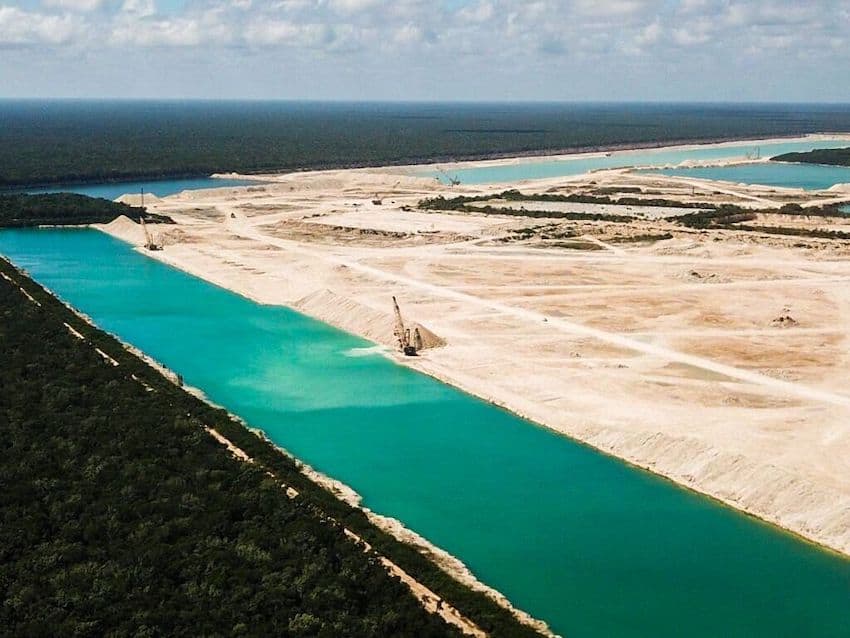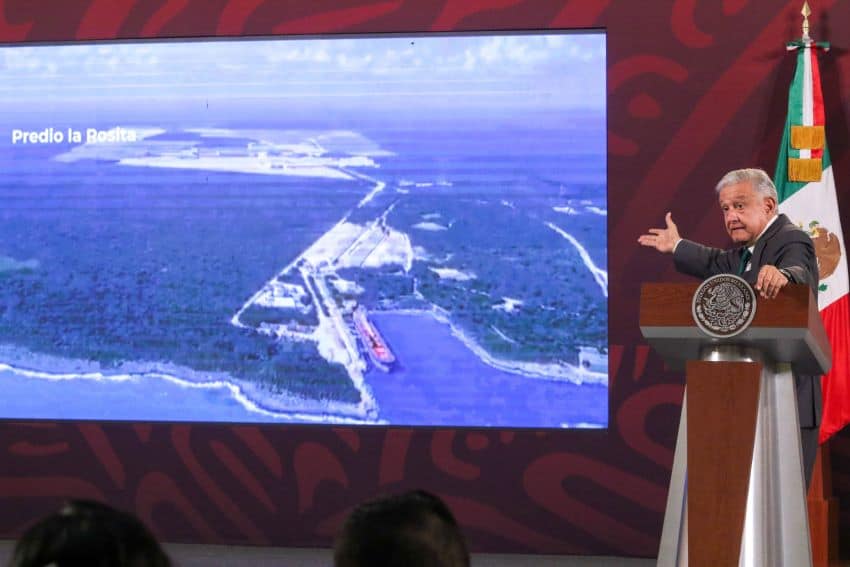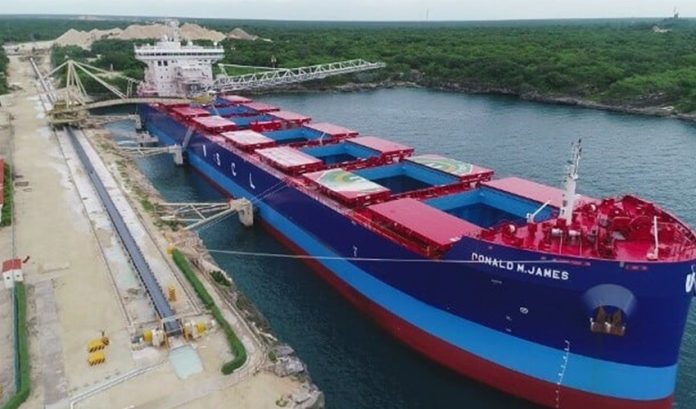The Mexican government will soon decree that a contested property owned by U.S.-based Vulcan Materials Company, located on the nation’s Caribbean coast, be declared a Protected Natural Area (ANP), according to sources quoted by Bloomberg on Monday.
President Andrés Manuel López Obrador’s administration has been negotiating for years to purchase the Sac Tun quarry and port located in the state of Quintana Roo that is owned by the Alabama-based construction aggregates firm.

Last October, the president warned the U.S. company that he would make the 2,400-hectare property a nature reserve by decree if the federal government’s offer to buy the land was rejected. Reuters reported that Mexico’s government would turn some of the space into a tourist destination, with cabins for rent and docking for cruise ships.
The Sac Tun quarry and the Punta Venado marine terminal — located south of the resort city of Playa del Carmen — was occupied by Mexican Navy personnel for several weeks beginning on March 14, 2023, in what Vulcan called “an illegal takeover.” López Obrador said that judges had authorized the action, which allowed Mexican cement giant Cemex to use the port to unload cargo.
Vulcan CEO Tom Hill wrote a letter of objection to Mexico’s Ambassador to the United States Esteban Moctezuma. In October, Hill wrote another letter — this time to U.S. Ambassador to Mexico Ken Salazar — decrying the lack of good-faith negotiations by the Mexican government.
Mexico had offered 6.5 billion pesos for the property — which at the time was worth about US $356 million — a figure which Hill and Vulcan deemed unacceptable. López Obrador has long argued that the limestone quarry is damaging the local environment.

Vulcan countered by pointing to its onsite reforestation program as well as several international environmental excellence awards.
Vulcan sought assistance from the U.S. government and a U.S. State Department spokesman told Bloomberg in October that the issue was being managed via a trade arbitration panel set up through the United States-Mexico-Canada Agreement (USMCA).
During his daily press conference on March 13, López Obrador told reporters that the Vulcan case would be resolved in the coming days. On Monday, Bloomberg reported that an anonymous source had said a presidential decree would be forthcoming.
Neither López Obrador’s office nor Mexico’s Foreign Affairs Ministry responded to questions about the decree.
López Obrador has utilized presidential decrees in conflicts with private companies twice since the end of 2023. In December, French industrial gas manufacturer Air Liquide saw its hydrogen processing plant in the state of Hidalgo taken over by Mexican authorities, and last month, a 110-hectare property owned by magnate Ricardo Salinas Pliego in the state of Oaxaca, which includes a golf course, was declared a national park.
With reports from Bloomberg
